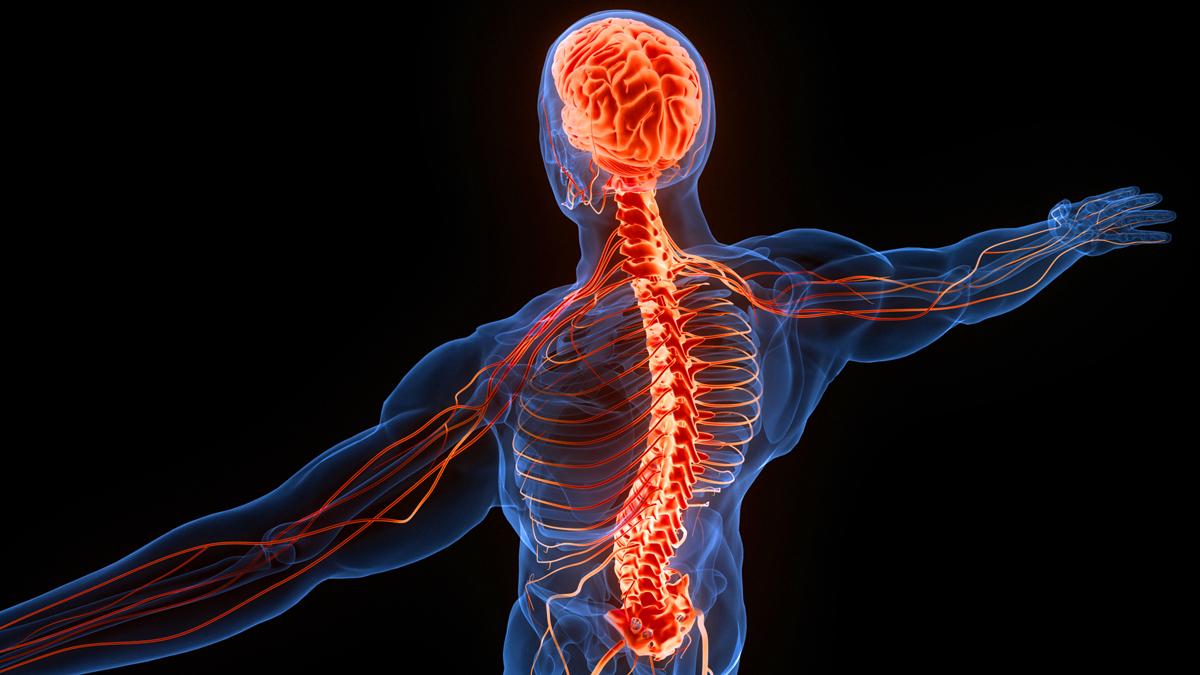Neuroplastogens: A novel approach to treat neurological diseases

In the US alone, one in five adults experiences a form of mental illness each year. New medicines are urgently needed, as current therapies fail to work in up to a third of patients. Dr Cheryl Barton discusses the recent developments in neuroplastogens and how they may offer a new approach to treating neurological diseases.
Neurological diseases such as treatment-resistant depression, addictive disorders, post-traumatic stress disorder, and end-of-life psychological distress and disorders, including neurodegenerative conditions such as Alzheimer’s disease and Parkinson’s disease, are often associated with changes in synaptic connectivity and plasticity in the brain. Several drug classes - including amphetamines, tryptamines, and psychedelics - have been shown to promote plasticity, however, these first-generation compounds may induce profound psychoactive effects, such as hallucinations, necessitating in-office administration and concomitant supportive care.
Next-gen non-hallucinogenics
Nevertheless, next-generation non-hallucinogenic “neuroplastogens” may provide a more targeted approach to treating mental health disorders.
According to Dr Robert Kargbo, of the Usona Institute in the US:
“There is substantial preclinical and clinical evidence that these psychedelic agents have a significant impact on neuroplasticity, even after a single dose. However, we should be cautious, as there is no ‘one size fits all’ solution. Many factors, such as genetic makeup, epigenetic modifications, and the microbiome, will influence the long-term clinical benefits. Further research in both animal and human studies is essential, as these agents show promise in various areas, including neurodegenerative disorders and traumatic brain injury, where they may modulate disease progression.”
The therapeutic potential of psychedelics: A growing interest
In recent years, interest in the therapeutic potential of psychedelic drugs - such as ayahuasca, lysergic acid diethylamide (LSD), N, N-dimethyltryptamine (DMT), and psilocybin - has grown. Psychedelic drugs can activate several biological targets, including 5-hydroxytryptamine (5-HT) 1A/2A receptors, 3,4-Methyl-enedioxy methamphetamine (MDMA), α-amino-3-hydroxy-5-methyl-4-isoxazolepropionic acid (AMPA) receptors, mammalian target of rapamycin (mTOR), N-methyl-D-aspartate (NMDA), and tyrosine kinase B (TrkB). Several clinical studies have demonstrated that they can induce neural plasticity (iPlasticity), synaptogenesis, and neural progenitor cell proliferation and have demonstrated antidepressant, anxiolytic, and anti-addictive effects.
In 2019, the US Food and Drug Administration (FDA) approved Janssen Pharmaceutical, Spravato (esketamine, the S isomer of ketamine) CIII nasal spray to treat depressive symptoms in adults with treatment-resistant depression (TRD). Preliminary data released by Incannex Healthcare also demonstrates that psilocybin - a preferential 5-HT 1A/2A receptor agonist - is effective in TRD. In May 2023, Epic Healing Eugene became the first licensed psilocybin centre in the US and it now has a waiting list of over 3,000 individuals suffering from psychological ailments, including depression and post-traumatic stress disorder (PTSD).
In June 2023, the FDA issued draft Guidance on clinical trials with psychedelic drugs and designated two Phase III clinical trials studying the ability of psilocybin to treat forms of major depressive disorder (MDD) with "Breakthrough Therapy" status. Interestingly, preliminary data indicates a single, moderate dose can improve the debilitating symptoms of MDD long-term with no serious adverse events. And, in March 2024, the FDA granted breakthrough designation for Mind Medicines (MindMed), MM120, (LSD D-tartrate) for the treatment of generalised anxiety disorder (GAD).
In April 2024, the EMA held a virtual briefing where it announced plans to revisit the potential of psychedelic compounds DMT, LSD, mescaline, and psilocybin for mental health conditions. In Europe, psychedelics are classified as Schedule I substances of little therapeutic value and fall under the 1971 United Nations Convention on Psychotropic Substances Act. The EMA is focused on psychedelic-assisted therapy (PAT), whereby the compounds are intended to be used adjunctively to modify or improve baseline psychotherapy.
According to Dr Kargbo:
“The clinical data on psychedelic agents is encouraging, but it is difficult to translate all findings from animal studies to human trials. The main concern of regulatory agencies is safety, and they understand that the way to advance this field is through collaborative efforts. The new industry collaborations recently announced are positive and a move in the right direction.”
The psychedelics clinical trial landscape today
Currently, there are over 300 clinical trials registered on clinicaltrials.gov to study the effects of psychedelics in humans (Table 1). The most advanced programme is Lykos Therapeutics’ MDMA-assisted therapy. Unfortunately, the FDA Psychopharmacologic Drugs Advisory Committee (PDAC) recently voted nine votes to two against the notion that it was effective in PSTD, and the FDA approval decision is expected on 11th August 11 2024.
Table 1: Selection of clinical trials currently evaluating psychedelic drugs for mental health disorders
| Product | Drug class | Company | Indication | Development Phase |
| MDMA-assisted therapy | Midomafetamine capsules | Lykos Therapeutics | PSTD | Filed |
| GH001 | Mebufotenin | GH Research Ireland Limited | TRD | IIb |
| MM210 | LSD D-tartrate | Mind Medicines | GAD | IIb |
| GM-1020 | NMDA receptor antagonist | Gilgamesh Pharmaceuticals | MDD | IIa |
| Psilocybin | Tryptamine | Halucenex Life Sciences Inc. | Treatment-resistant PTSD | II |
| DLX-001 | N.D. | Delix Therapeutics | MDD | I* |
| GM-2505 | 5-HT2A receptor agonist | Gilgamesh Pharmaceuticals | Depression, anxiety, and the augmentation of psychotherapy | I* |
| AP-188 | DMT | Algernon Pharmaceuticals | Traumatic brain injury | I |
| DLX-007 | Ibogaine analogue | Delix Therapeutics | SUD | I |
| ELE-101 | IV Psilocin | Eleusis Therapeutics | SAD | I |
| GM-3009 | Ibogaine analogue | Gilgamesh Pharmaceuticals | SUD | I |
| MM402 | R-MDMA | Mind Medicines | ASD | I |
ASD – autism spectrum disorder; GAD – generalised anxiety disorder; MDD- major depressive disorder; N.D. - not disclosed; PSTD – post-traumatic disorder; SUD - substance use disorder; * - trial complete.
Source: Clinicaltrials.gov, accessed May 2024
Several US biotechs are actively working in the space, including US-based Delix Therapeutics, Gilgamesh Pharmaceuticals, and MindMed.
In February 2023, Delix Therapeutics inked a deal with Sweden-based Cellectricon, a services provider, and partnered with Expressive Neuroscience, to further advance its CNS research capabilities. In December 2023, Delix was awarded a $320,000 grant from the National Institutes of Health (NIH) to advance the development of its ibogaine analogue DLX-007, for substance use disorders (SUDs). In December 2023, Delix presented interim data from the phase I trial with DLX-001, a non-hallucinogenic psychomimetic in MDD at the 2023 American College of Neuropsychopharmacology (ACNP) Annual Meeting in Tampa, Florida. DLX-001 was shown to be safe, well-tolerated, and, did not produce hallucinogenic, psychotomimetic, or dissociative effects in 62 healthy volunteers and the company expects to begin Phase II trials in mid-2024.
Meanwhile, in May 2024, US-based AbbVie became one of the first pharma companies to tap into the potential of neuroplastogens, when it signed a $1.95 billion deal ($65 million upfront plus milestone payments and royalties on net sales) with Gilgamesh Pharmaceuticals. Gilgamesh has utilised its AI-powered behavioural and imaging platform to develop a diverse portfolio of molecules including:
- GM-1020, a small-molecule orally active NMDA receptor antagonist that is under development for depression and other indications. In May 2024, the company initiated a Phase IIa trial with GM-1002 in the treatment of MDD after successfully completing a Phase I Single Ascending Dose (SAD) and Multiple Ascending Dose (MAD).
- GM-2505, a short-acting 5-HT2A receptor agonist that is being developed for the treatment of depression and anxiety, and the augmentation of psychotherapy. In November 2023, a Phase I SAD trial of GM-2505 demonstrated psychedelic effects lasting 60-90 minutes and was well-tolerated with no serious or severe adverse events.
- GM-3009, a novel ibogaine analogue, which is a naturally occurring, plant-derived atypical psychoactive compound that has shown promise in treating SUD.
- GM-5022, a pre-clinical non-hallucinogenic oral neuroplastogen in development for depression, anxiety, and other mental health disorders.
Gilgamesh was awarded $14 million from the National Institute of Drug Abuse to advance GM-3009, having raised $39 million in Series B funding in December 2022 to advance GM-1020 and GM-2505.
Also last month, MindMed presented Phase IIb at the American Psychiatric Association (APA) Annual Meeting in New York with MM120 in the treatment of GAD, demonstrating it had met its primary and secondary endpoints and maintained clinically and statistically significant HAM-A reductions compared to placebo at 12 weeks, with a 65% clinical response rate and a 48% clinical remission rate. MindMed plans to expand MM120 into additional mental health indications and has initiated a Phase I trial with MM402 (R-MDMA) for the treatment of autism spectrum disorder (ASD).
Neuroplastogens and the future of mental health treatment
The field of non-hallucinogenic drugs is still in its infancy. The industry has access to new screening technologies and artificial intelligence (AI) platforms to cross-correlate preclinical studies, clinical data, electronic health records (EHRs), mood rating scales, brain imaging data, and real-world evidence to predict, classify, or subgroup mental health illnesses to enhance research and drug development and drive the personalisation of treatment.
According to Dr Kargbo:
“The pharma industry is very innovative and advances in brain organoid in vitro models allow for more effective assessment of neuroplastogens. Additionally, the incorporation of the microbiome, which is increasingly recognised as important for our health and wellbeing, could be transformational in identifying new pathways and therapeutics. Furthermore, AI has the potential to cross-correlate in vitro, preclinical animal, clinical, and real-world data, which could help to personalise treatment in the future.”












